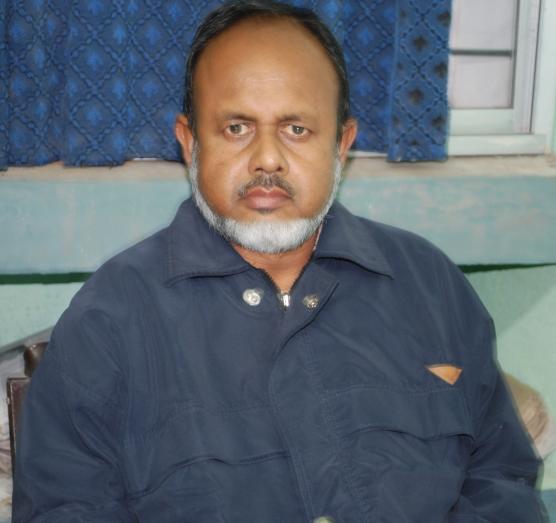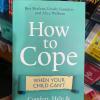29 June 2015
"Everything has been said before, but since nobody listens we have to keep going and beginning all over again." – André Gide
Dear Professor Chakrabarti,
I am extremely sorry that I could not attend your informal meeting with the teachers of Vidyasagar University held on 25th June 2015 at B.N. Sasmal Hall. I was busy in taking classes in PhD course work in Research Methodology in Physics Department during the time of the said meeting. Let me express my best wishes for keeping with your commitment of meeting the faculties at VU.
This time, I write this letter as it were the cases with previous occasions. I would like to express my reactions on the meeting. The difference is, in all the previous four occasions my open letters were based on direct firsthand participation in your meeting, while this time my knowledge is based on listening to my colleagues who have attended the meeting. The first type is anthropological while the second is historical, if you kindly allow simplification. The first resembles fieldwork, the second is historical, like reading the Archive, in this case, a living Archive. I use the term Archive in the sense Michael Foucault, Jacques Derrida and Bernard Cohn used it, which is Archive as a biased, partial and the hegemonic site, a cultural artifact. So my description this time would be not as 'thick' (pace Geertz) as it was in the previous cases. Let me begin with my thin description.
Romanticisation and mystification
My living Archive revealed that in the meeting one senior and reemployed faculty (I do not name him owing to the nature of my source of data as explained in the previous paragraph) suggested to remove the service status of teachers from the public domains (University Diary and Website) since, as he argued quite emphatically, 'A teacher is a teacher, whether on reemployment or on contract'. My Archive could not inform me whether (s)he included teachers 'on lien' under her/his socialist/utopian category! This view of deleting the service statuses of teachers is a mystification, which not only attempted to hide the reality but it is also a kid of romanticisation since it suppresses the real service status of teachers. A university diary, after all, is an official record of factually correct and unsuppressed record book. If this sort of deletions are done, then why the ranked designations of teachers, viz. Assistant Professor, Associate Professor and Professor should not also be deleted? I hope you will not be carried over by this kind of populist demands. What should really have been emphasized for the real interest of the teachers of Vidyasagar University is a demand for the revision of the system of repeated evaluation of post-graduate teachers on reemployment just within a period of 5 years, and that as far as my knowledge goes, the system exists at Vidyasagar University alone. Correct me if I am factually wrong. This issue should have been pointed out by the office-bearers of the two teachers' associations who were present in your meeting. I believe, either they are now non-existent entities or they did not consider your informal meeting seriously. Would not the teacher who demanded deletion of service status of faculties in the public domains of the university felt it more honourable had he not have to submit the renewal of reemployment applications more than once?
Webopathy
My living Archive brought me another issue raised by you as regards our dismal record of academic performance recently revealed in the NAAC report. The Archive said that you pointed to the relatively poor academic performance of Vidyasagar University in comparison with its administrative and infrastructural performances. Let me point out that if all the different sectors of the university are parts of the whole then this sort of comparison may lead to mutual blame game instead of asking real questions. The NAAC results are devastating for all of us. We should start introspection instead of looking at the comparative figures within ourselves. In my view, one of the major reasons of the debacle lies in our attitude towards new technologies, which does not only mean good roads, more cars, shiny buildings and CCTVS but also use of J-Stor, Google Scholar, innovative teaching with term paper writing and class seminars by students in their internal assessment tests, use of UGC unassigned grants for writing books and the like. Just before the NAAC, we suddenly became conscious about h-index and i10 index and uploaded our performances in the web, including the web pages of the university. It was just an 11th hour preparation like a bad student simply because you cannot have an entry or a good score in the academic web pages without regular use for a long period. Let me give one instance of our attitude towards cyberspace.
Instance
I could recollect that I sent you a model proforma for presentation before the mock NAAC peer team visit as early as 27.08.2014 in which I emphasized on the presence of individual teachers in the international academic websites. You immediately replied on the same day. Let me quote
The form designed by you will be of great help to all of us. I shall have a word with the Director IQAC regarding this. I appreciate your endeavour and your spirited response.
But curiously, no further response from the concerned cell came to me nor did I observe any appreciable reflection on my model form. I later realized that it was natural since majority of us suffered from webopathy (a new term coined by me which simply means a combination of fear and neglect towards the use of websites which may often lead to the belittling of persons who use websites) which was one of the hidden causes of our failure to tackle the NAAC peer team with modern tools.
I do not mean to say that webopathy is the only factor behind our failure. There are many other factors. Another important factor is our lack of academic exchanges among the departments. While you are untiringly harping on interdisciplinary research programmes, we are creating more distance between closely related departments. Take for instance, the different centres of the university. These centres should have been interdisciplinary in nature. But are they really? If they are not and I believe so, then what are the reasons? Is there any effort from these centres to involve the students, scholars and teachers in a common programme? We do not even know what these centres actually do for the academic benefit of the related disciplines. Do they have any baseline information on the research interests of their colleagues in the related departments? I observed that the university NSS unit has more fruitful connections with the different academic departments of the university than these elite centres often run by one or two persons.
From the Oral Archive
I will end this time with an anecdote to change the mood of my text in line with an informal meeting. A common joke which runs in our circle goes like this. This is about labeling academically active faculties of the university. A teacher who publishes good number of research articles and has a fairly good h-index and i10 index is known as a CPI (M), which means Copy Paste International (Master)! There are other jokes which are in the air here at Vidyasagar University. The central theme of these jokes is 'There is no use in becoming an active academic because, these efforts are sham.' Jokes and humours as social scientists say are not only meant for non-commercial entertainment, they also represent the central themes of the moral order of a social group or community.
I believe all of us are just walking on the tip of large iceberg named Anti-academism.
What is the way out? I firmly believe that we should fight against the Anti-academic culture tooth and nail at any cost. We should learn to use the cyberspace to become more literate and finally act meaningfully both at the local and global levels.
Let us hope for a better future where serious action will matter more than long lectures, romantisisation and webopathy.
With regards,
Abhijit Guha.
Professor
Department of Anthropology
Vidyasagar University
Midnapore-721102
West Bengal
India.
















